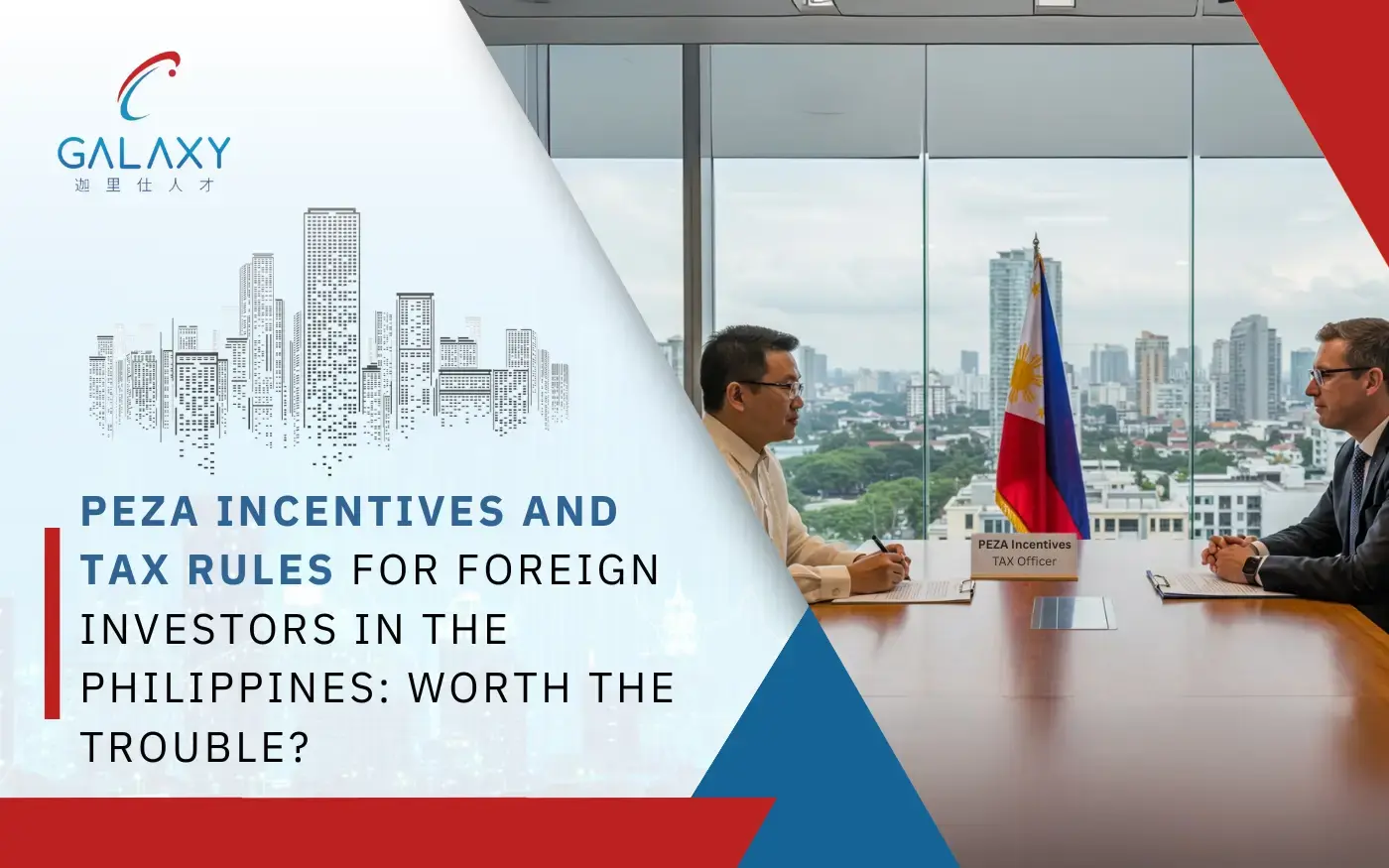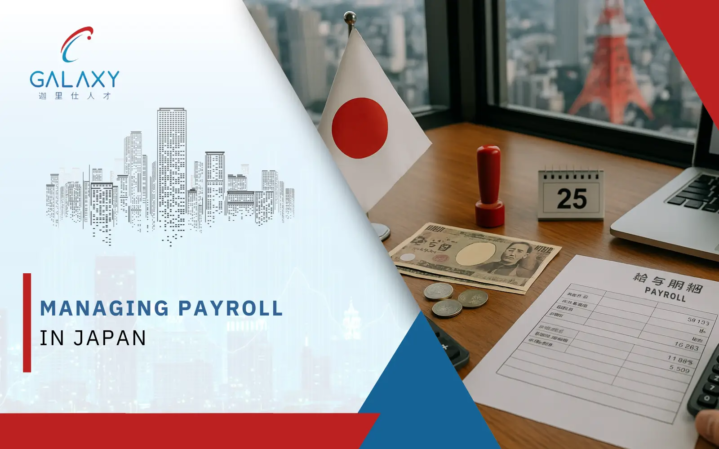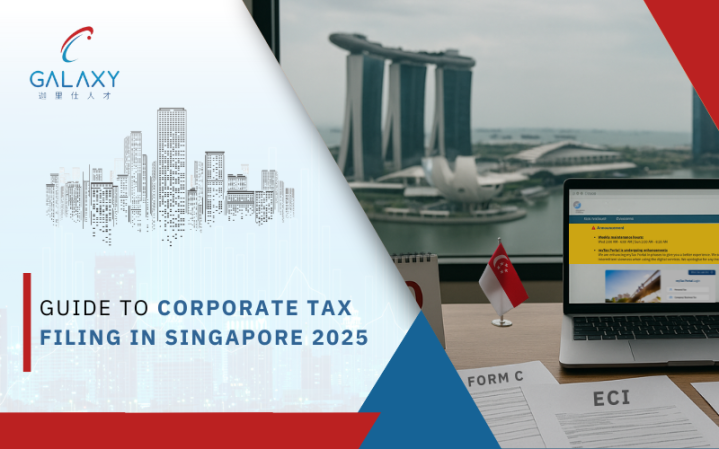PEZA incentives and tax rules for foreign investors in the Philippines: Worth the trouble?

As the Philippines strengthens its position as a strategic investment destination in Southeast Asia, it continues to refine its fiscal policies to attract foreign direct investment (FDI). At the heart of these reforms lie the Philippine Economic Zone Authority (PEZA), the Corporate Recovery and Tax Incentives for Enterprises (CREATE Law), and its successor, the CREATE MORE Act. These initiatives provide a compelling suite of tax incentives, regulatory reliefs, and ease-of-entry mechanisms for foreign companies looking to establish or expand their presence in the country.
Yet, a fundamental question remains: Are these incentives truly worth the procedural and compliance burden?
This blog demystifies the PEZA investment framework in the Philippines and explains how foreign investors can benefit from the new tax rules introduced under CREATE and CREATE MORE.
Table Of Content
- What is PEZA and Why does it Matter for Foreign Investors in The Philippines?
- Who is Eligible to Register with PEZA?
- How can your Business Benefit from PEZA Registration?
- How does CREATE MORE Improve the PEZA Investment Framework?
- What is the Step-by-Step Process for PEZA Compliance in The Philippines?
- Transition Rules for Existing PEZA Enterprises
- What are the Long-Term Benefits of Investing in PEZA Zones?
- Case Study: Upgrade Energy Philippines Inc. (UGEP) – A Solar-Powered PEZA Success
- What are the Challenges of PEZA Registration?
- Conclusion
What is PEZA and Why does it Matter for Foreign Investors in The Philippines?
The Philippine Economic Zone Authority (PEZA) was established in 1995 to oversee the development and management of special economic zones (SEZs) across the country. These zones aim to promote industrial growth, technology transfer, employment generation, and foreign investment.
The CREATE Act (Corporate Recovery and Tax Incentives for Enterprises)—Republic Act No. 11534—was enacted in 2021 to rationalise fiscal incentives, reduce corporate income tax, and modernise the incentives system.
In 2024, the CREATE MORE Act (Republic Act No. 12066) was introduced to refine further and enhance these measures based on stakeholder feedback.
For foreign investors, PEZA represents a gateway to lower tax burdens, predictable policies, and preferential treatment within secure, government-supported zones, making it one of the most strategic routes to enter and scale operations in the Philippines.
Who is Eligible to Register with PEZA?
Foreign investors can apply for PEZA registration provided they meet certain qualifying conditions. The primary eligibility criteria include:
- Export Orientation: Enterprises must export at least 70% of their total production or services.
- Location: Business activities must be situated within PEZA-accredited zones, which include IT parks, manufacturing hubs, agro-industrial centres, and tourism zones.
- Sector Alignment: Key sectors include manufacturing, IT, and Business Process Management (IT-BPM), renewable energy, agribusiness, logistics, and biotechnology.
Businesses must also comply with operational requirements, such as obtaining environmental permits, securing zoning clearances, and obtaining land-use approvals.
How can your Business Benefit from PEZA Registration?
PEZA-registered enterprises enjoy a range of fiscal and non-fiscal incentives. These include:
Income Tax Holiday (ITH)
- Available for 4 to 7 years, extendable to 8+ years for priority sectors under CREATE MORE.
- Strategic projects, such as AI, medical devices, and sustainable manufacturing, may benefit from extended ITH.
Special Corporate Income Tax (SCIT)
- After the ITH period, enterprises can opt for a 5% tax on gross income instead of all national and local taxes.
- This simplifies tax reporting and reduces fiscal uncertainty.
Enhanced Deductions (ED)
- Alternatively, enterprises may choose a 20% Corporate Income Tax with substantial deductions (e.g., 100% for power, training, and R&D costs).
- CREATE MORE clarifies and expands eligible deductions.
VAT and Duty Incentives
- VAT zero-rating on the purchase of goods and services directly related to operations.
- Duty-free importation of capital equipment, raw materials, and administrative supplies.
- CREATE MORE extends duty-free privilege to directly attributable support activities (e.g., HR systems, air conditioning units, etc.).
Local Tax Exemptions
- Enterprises are exempt from business permits, local business taxes, and other fees.
Under CREATE MORE, Registered Business Enterprises under the Local Tax (RBELT) regime caps local business taxes at 2% of gross income.
How does CREATE MORE Improve the PEZA Investment Framework?
Signed in November 2024, the CREATE MORE Act(Corporate Recovery and Tax Incentives for Enterprises) (RA 12066) builds upon the original CREATE framework with significant updates, such as:
- Longer Tax Holidays for high-impact and decentralised industries.
- Clarity in implementing rules makes it easier for foreign investors to plan operations.
- Expanded scope of VAT zero-rating and duty-free benefits.
- 50% Remote Work Allowance for IT-BPM Firms, addressing post-pandemic realities.
- Simplified compliance mechanisms, such as streamlined document submissions and electronic filing.
- Customs bonding privilege for imports prior to the issuance of the PEZA Certificate of Registration.
- RBELT(Registered Business Enterprises under the Local Tax)Provision to protect enterprises from unpredictable local taxation.
These improvements directly respond to prior investor complaints about ambiguity and implementation gaps in the CREATE Law.
For expert assistance in navigating Philippine tax reforms like the CREATE MORE Act:
explore our Accounting, Finance, and Taxation services.
What is the Step-by-Step Process for PEZA Compliance in The Philippines?
To secure PEZA incentives, the registration process involves several steps:
A. Pre-application
- Finalise the business plan, identify the PEZA zone, and conduct a feasibility analysis.
- Engage legal and consulting advisors to ensure compliance with zone-specific regulations.
B. Application Submission
- Apply with the required documents:
- Project proposal
- Environmental Compliance Certificate (ECC)
- Zoning clearances
- Audited financials or capital verification
- PEZA typically reviews and approves applications within 30 to 60 business days.
C. Post-Approval Compliance
- Obtain PEZA Certificate of Registration.
- Sign a lease agreement with the zone operator.
- Register with BIR, SEC, and LGU (as applicable).
Transition Rules for Existing PEZA Enterprises
CREATE MORE ensures a smooth transition for legacy PEZA enterprises:
- Entities registered before the effectivity of CREATE may continue under existing incentives until the end of their ITH or SCIT periods, or until June 30, 2031, whichever comes first.
- After expiration, companies can shift to enhanced deductions or SCIT schemes.
- Relocation from NCR to other regions may qualify the enterprise for an additional 3-year ITH, promoting decentralisation.
This balanced approach ensures minimal disruption for existing investors while incentivising regional growth.
What are the Long-Term Benefits of Investing in PEZA Zones?
For foreign investors, PEZA incentives represent more than just tax relief—they serve as a gateway to regional integration and operational efficiency.
- Tax Predictability: SCIT and RBELT protect against shifting local and national tax regimes.
- Cost Reduction: Duty-free imports, VAT exemptions, and power deductions reduce operational expenditure.
- Global Market Access: Export-oriented businesses benefit from bilateral trade agreements via the Philippines.
- Workforce Flexibility: PEZA allows greater flexibility in employment structures, including hybrid work models.
Case Study: Upgrade Energy Philippines Inc. (UGEP) – A Solar-Powered PEZA Success
In September 2022, Upgrade Energy Philippines Inc. (UGEP) partnered with the Philippine Economic Zone Authority (PEZA) to develop solar installations in Cavite and Baguio Economic Zones. Operating under the Renewable Energy Act and the CREATE Law, UGEP gained access to a suite of fiscal incentives by registering as a PEZA locator.
The company’s project aimed to supply clean, solar energy directly to PEZA-registered tenants, helping reduce carbon emissions while offering competitive electricity rates.
Key incentives secured include:
- 7-year income tax holiday (ITH)
- Duty-free importation of solar equipment
- VAT zero-rating on local purchases
- Authorisation to sell power directly within PEZA zones
With an estimated annual revenue of ₱400 million, UGEP saves approximately ₱25 million per year through reduced corporate taxes, VAT exemptions, and waived import duties.
This case demonstrates the financial and operational value of aligning renewable projects with national investment priorities. UGEP’s success underscores how PEZA incentives and CREATE policies can support sustainability while enhancing profitability, making the Philippines an attractive destination for clean energy investments.
What are the Challenges of PEZA Registration?
While the PEZA framework is rewarding, it comes with its complexities:
- Maintaining a 70% export quota may be difficult for firms with significant domestic demand.
- Non-compliance with zone regulations may result in the suspension or revocation of incentives.
- Administrative burden: Environmental and zoning permits can cause delays in approvals.
- Policy shifts: Although CREATE MORE introduced clarity, sudden shifts in tax policy still pose a risk.
To mitigate these, businesses should work closely with experienced legal and tax advisors.
Conclusion
For qualified and strategically positioned investors, PEZA incentives under CREATE and CREATE MORE can be truly game-changing.
These incentives offer fiscal relief, streamline processes, and foster long-term growth. However, the complexity of application, monitoring, and compliance requires careful planning. With expert support and a proactive approach, foreign investors can unlock significant value from these incentives.
Galaxy Group is committed to guiding you through this journey, from identifying opportunities to achieving successful market entry. Our team provides end-to-end advisory services, from zone selection to PEZA registration, tax strategy, and compliance support.
For a seamless market entry, pairing PEZA registration with compliant hiring is essential.
Learn how global companies can legally hire talent in the Philippines.
Maximise your tax savings with PEZA incentives.
Get end-to-end support from Galaxy Group—your trusted APAC advisory partner.
FAQ’S
Can PEZA-registered companies sell directly to other locators?
Yes. Companies like UGEP are allowed to directly supply energy to PEZA locators within the same economic zone, enabling efficient distribution and cost-effective pricing.
Is the PEZA registration process complex?
While the process involves multiple steps—such as feasibility studies, environmental permits, and zone-specific approvals—engaging experienced consultants like Galaxy Group can significantly streamline the process.
What is the main objective of the CREATE Law in the Philippines?
The CREATE Law Philippines aims to attract more investments by lowering corporate income tax rates and modernising the tax incentive system. It introduces more explicit rules, transparency, and performance-based incentives to replace the outdated and fragmented system.
What are the key incentives available to foreign investors under CREATE?
Foreign investors under CREATE are eligible for a 4–7 year Income Tax Holiday (ITH), followed by either a 5% Special Corporate Income Tax (SCIT) or Enhanced Deductions under a 20% corporate tax rate. Additional incentives include VAT zero-rating and duty-free importation.
Can investors lose PEZA incentives midway through the project?
Yes—due to non-compliance, underperformance, or material breach of registration terms. However, PEZA provides formal notices, time-bound corrective periods, and appeal opportunities before withdrawing incentives.
Are tax incentives transferable if the company restructures or merges?
Not automatically. Any significant change in business structure (e.g., merger, acquisition, spin-off) must be approved by PEZA. In many cases, the new entity must reapply or seek a formal transfer of incentives, unless specific continuity clauses are honoured.




